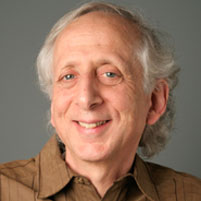Terrorism Research Must Be Driven By Evidence, Not Political Agendas
By Shilo Rea
 Despite concerted efforts by many people and institutions, fundamental aspects of terrorism — identifying participants, understanding how they radicalize, and developing effective countermeasures — remain unclear.
Despite concerted efforts by many people and institutions, fundamental aspects of terrorism — identifying participants, understanding how they radicalize, and developing effective countermeasures — remain unclear.
In a new Science Policy Forum article, four experts from different fields propose a strategy for terrorism research. Carnegie Mellon University’s Baruch Fischhoff, a decision scientist; Scott Atran, an anthropologist at the Centre National de la Recherche Scientifique in Paris; Robert Axelrod, a political scientist from the University of Michigan; and Richard Davis, a former White House policy advisor now at the University of Oxford, call for theoretically informed field research that is inclusive to all disciplines and linked with policy-making.
The approach is meant to protect the integrity of academic research from political interference, while protecting policy makers from simplistic academic accounts.
"Bridging theory and practice is always challenging, and particularly when diverse forms of expertise are needed, and the people who have it lack opportunities, and perhaps incentives, for collaboration," said Fischhoff, the Howard Heinz University Professor in CMU’s Institute for Politics and Strategy and Department of Engineering and Public Policy. "Research that overcomes these barriers is a hallmark of Carnegie Mellon and of the projects featured in our article. It is essential if the social sciences are to make their essential contributions to the fundamentally human problems that terrorism reflects and represents."
In "Challenges in Researching Terrorism From the Field," the authors outline how terrorism research would benefit from a national institutional review board to ensure the legal and ethical standing of the work. This would help to ensure that science, not politics, guided funding, and to avoid situations like the American Psychological Association’s now-repudiated involvement with torture.
"To be more successful in combating terrorism, governments should look at how they can build research capacity that is properly funded, independent of governmental interference, and grounded in systematic data collection, checking and analyses that is devoid of politics," said Atran, who is also a research professor at the University of Michigan and cofounder of ARTIS International.